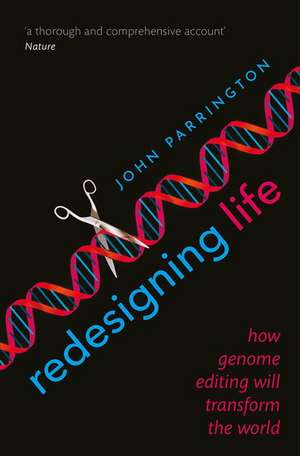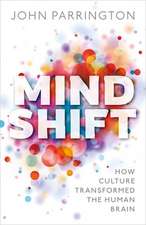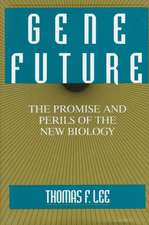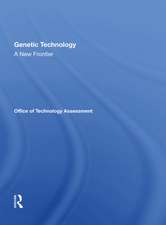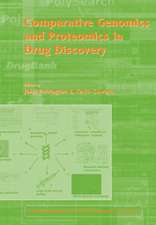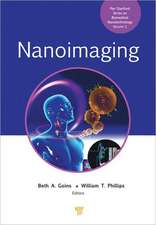Redesigning Life: How genome editing will transform the world
Autor John Parringtonen Limba Engleză Paperback – 27 aug 2020
Preț: 69.45 lei
Preț vechi: 82.68 lei
-16% Nou
Puncte Express: 104
Preț estimativ în valută:
13.29€ • 13.91$ • 10.100£
13.29€ • 13.91$ • 10.100£
Carte disponibilă
Livrare economică 04-10 martie
Livrare express 01-07 martie pentru 35.35 lei
Preluare comenzi: 021 569.72.76
Specificații
ISBN-13: 9780198766834
ISBN-10: 0198766831
Pagini: 384
Ilustrații: 31 black and white figures
Dimensiuni: 129 x 196 x 22 mm
Greutate: 0.3 kg
Editura: OUP OXFORD
Colecția OUP Oxford
Locul publicării:Oxford, United Kingdom
ISBN-10: 0198766831
Pagini: 384
Ilustrații: 31 black and white figures
Dimensiuni: 129 x 196 x 22 mm
Greutate: 0.3 kg
Editura: OUP OXFORD
Colecția OUP Oxford
Locul publicării:Oxford, United Kingdom
Recenzii
a thorough and comprehensive account of the methodologies for altering life that have been or are being developed, and the directions that they may take in future.
painstakingly researched...the examples themselves are clear, concise and often arresting . . . an engaging and comprehensive introduction
a comprehensive history of the research and discoveries underlying genome editing, as well as a broad coverage of research in the present day.
There is a revolution going on in the life sciences, one that has already transformed scientific discovery and will soon change medicine. It could even see us altering the ecosystem in a precise, targeted way. This revolution has a name--CRISPR--and the key part of John Parrington's Redesigning Life is a good summary of the gene-editing technique that lies behind the acronym.
John Parrington's engaging and thoughtful book explains the science behind recent rapid advances in genetic engineering that mean it is increasingly possible to enact precise changes at a molecular level . . . Parrington's clear descriptions and diagrams combined with interesting snippets from the narrative and biography of scientific discovery make the science behind these developments readily accessible.
painstakingly researched...the examples themselves are clear, concise and often arresting . . . an engaging and comprehensive introduction
a comprehensive history of the research and discoveries underlying genome editing, as well as a broad coverage of research in the present day.
There is a revolution going on in the life sciences, one that has already transformed scientific discovery and will soon change medicine. It could even see us altering the ecosystem in a precise, targeted way. This revolution has a name--CRISPR--and the key part of John Parrington's Redesigning Life is a good summary of the gene-editing technique that lies behind the acronym.
John Parrington's engaging and thoughtful book explains the science behind recent rapid advances in genetic engineering that mean it is increasingly possible to enact precise changes at a molecular level . . . Parrington's clear descriptions and diagrams combined with interesting snippets from the narrative and biography of scientific discovery make the science behind these developments readily accessible.
Notă biografică
John Parrington is an Associate Professor in Molecular and Cellular Pharmacology at the University of Oxford, and a Tutorial Fellow in Medicine at Worcester College, Oxford. He has published over 80 peer-reviewed articles in science journals including Nature, Current Biology, Journal of Cell Biology, Journal of Clinical Investigation, The EMBO Journal, Development, Developmental Biology, and Human Reproduction. He has extensive experience writing popular science, having published articles in The Guardian, New Scientist, Chemistry World, and The Biologist. He has also written science reports for the Wellcome Trust, British Council, and Royal Society. He is the author of The Deeper Genome (OUP, 2015).
